Review: Shrinking, "Jimmying" & "I Love Pain" | Season 2, Episodes 1 & 2
The returning hangout dramedy considers how much of a vibe shift is necessitated by attempted manslaughter
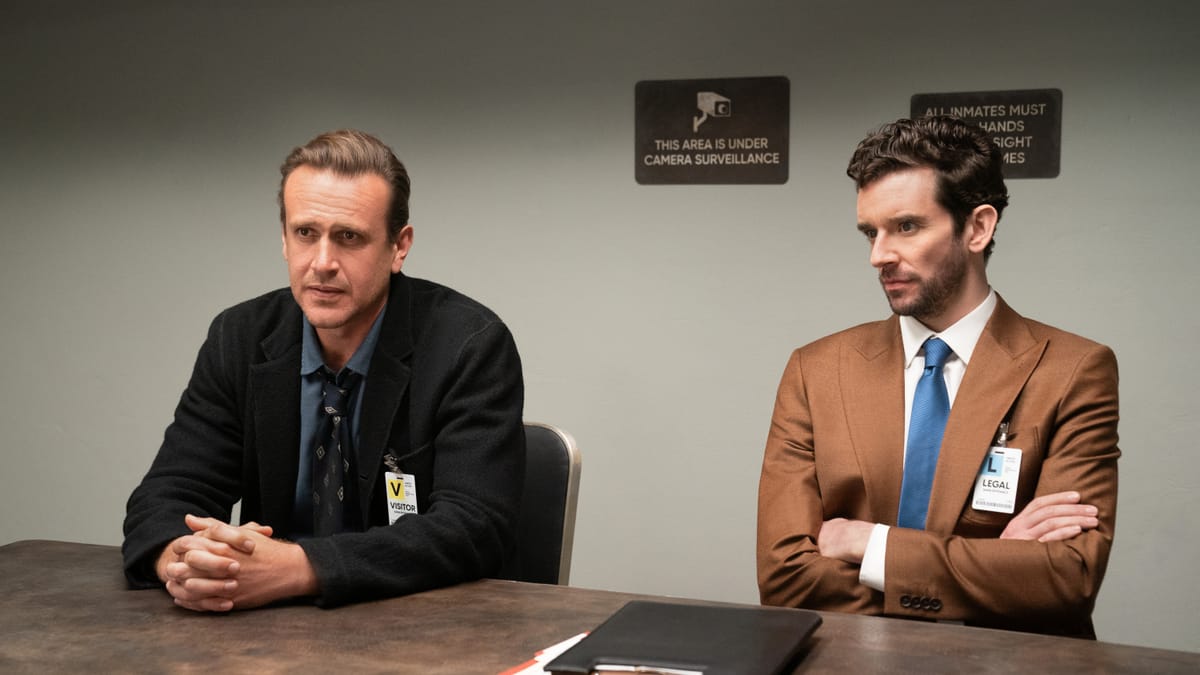
Welcome back to Episodic Medium’s coverage of Apple TV+ dramedy Shrinking, which returns for its second season with two episodes. As always, this first review is free, but future reviews will only be for paid subscribers. To learn more about our fall schedule, click here.
“I need to hear you say I didn’t fuck it up with my patients.”
I don’t always necessarily feel like I’d benefit as a critic from being in a writer’s room for a show I’m reviewing. It’s sometimes tempting to want to know all the hidden logics for certain choices, especially if a show makes decisions you wouldn’t, but in the end the “why” doesn’t matter: it’s the “what” that makes it onscreen, and which shapes the show’s characters and story.
However, my one exception to this is the writer’s room at the beginning of a second season. It’s the pivotal point in an ongoing series, as the experiment of season one is assessed for the first time. The writers have now seen their creation come to life, witnessing how their own evolving understanding of the show converged with the actors and directors responsible for actualizing it. The conversations they have in the wake of that first season will be foundational to everything that follows, and while the actual content of the second season will reflect it, I’d still love to see how they work through their feelings in real time to come to those conclusions.
In the specific case of Shrinking, I’d love to know how the writers postmortemed the choice to have Grace push her husband off that cliff. As I wrote at the time, I wasn’t sure what the intention behind this development was:
“I definitely appreciate that the show is clearly framing her actions as a disruption of the hangout status quo, but it’s also very clear Shrinking won’t be abandoning that, which makes me question just how much of an impact this will actually have on what the show will become next season.”
I don’t know that I was necessarily concerned the show would suddenly abandon what made it work, but there’s a clear tension between what the writers would typically do in this situation (double down on what worked) and the demands of the plot twist they engineered.
What struck me about these opening episodes, without the insight into the writers’ thought process, is how Grace didn’t become a central story in the way that I anticipated. There’s still a lot of continuity here: as I predicted, Sean’s food truck and Gaby’s teaching job are both new story engines, even if the latter is going to give me a heart attack given her lack of boundaries with her students. But even though we’re still following up on Grace, and the opening scene is of Jimmy visiting her in jail, the actual consequences are left more open-ended than I would have expected. Instead of an immediate threat to Jimmy’s license, or an imminent investigation in which his liability could be in question, Grace is being used more as a source of insecurity for Jimmy and his methods than a legitimate threat to his job.
Technically, that trial is happening, and inserting Brian as Gaby’s lawyer suggests ensures it remains a consistent presence, so it’s not that there aren't stakes involved. However, even when we do check in with Grace, it feels almost procedural—look at how the scene in “I Love Pain” devolves into Brian’s anxiety over the fact he was the last to know Jimmy and Gaby were sleeping together. I’m not mad that the show has found a way to make a pending trial for some form of attempted manslaughter (dude sadly survived) part of the hangout vibe, but it’s not reorienting the show in the way it could have, and once Jimmy reveals all the details to Paul it largely fades into the background.
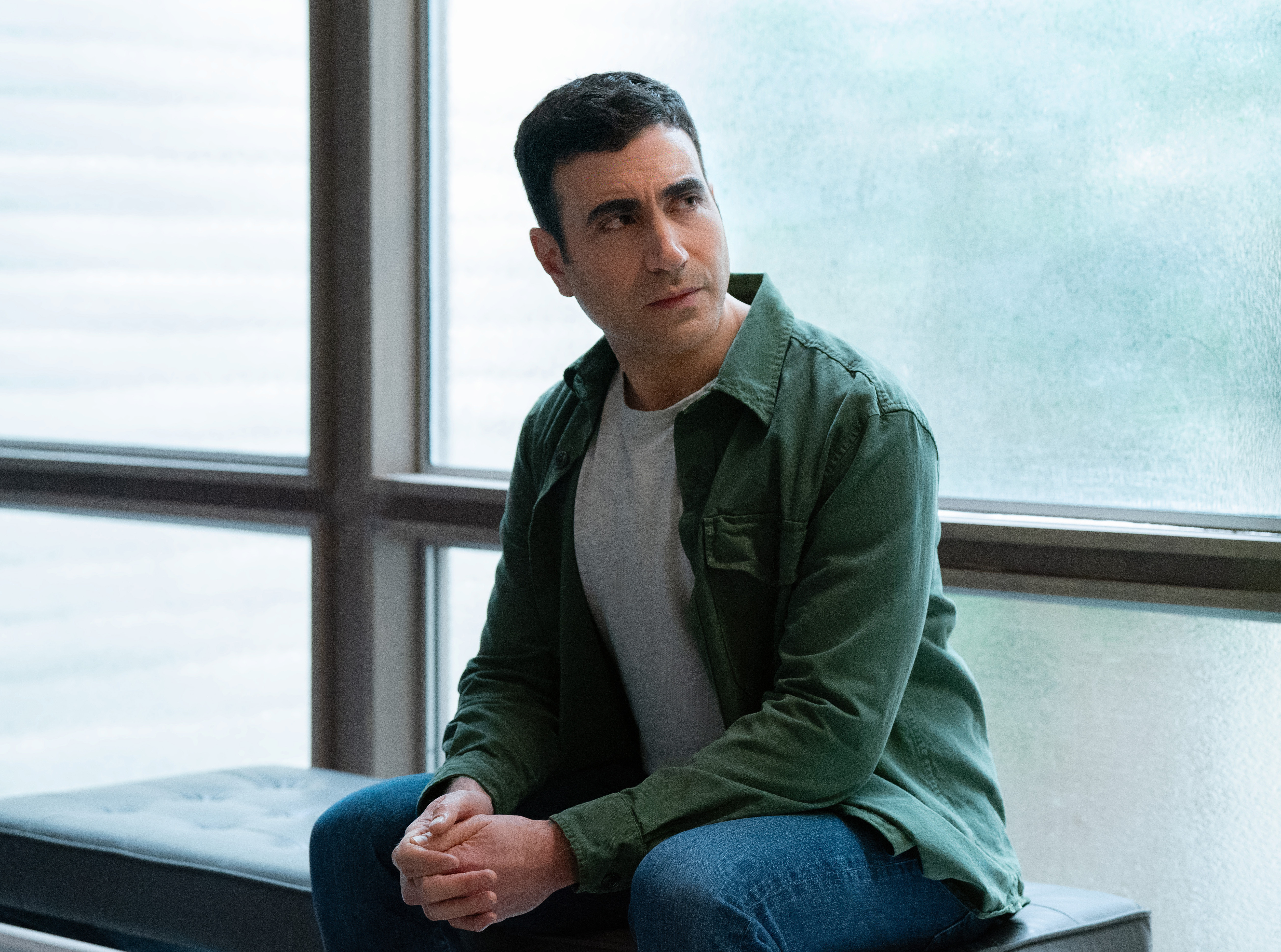
This could change by season’s end, but the biggest reason Grace’s story feels tangential is that the show introduces a new central engine of tension at the end of “Jimmying” that largely replaces it. I had read going into the season that co-creator Brett Goldstein had been cast in an unknown role, and when the reveal hits that he’s the drunk driver who killed Jimmy’s wife Tia, it all clicked into place. As much as Roy Kent was Ted Lasso’s version of Harrison Ford’s Paul, in terms of irascible one-liner machines, Goldstein is a capable dramatic actor, and I’ll be really curious to see how his role as “Double D” evolves. As the end of “I Love Pain” proves, this is really Alice’s story more than it is Jimmy’s, which makes sense: while Jimmy has a clear engine with his therapy clients and the workplace material, Alice didn’t really have a story once her relationship with her father was brought to a stronger place. As much as I appreciate her torturing of poor Connor, I’m more interested in how she continues to process the loss of her mother through the man who wants to apologize for what he did.
Notably, though, Jimmy’s therapy engine has shifted with the move of Sean over to Paul. It’s a decision that helps to keep the show from treading familiar territory with the character, who continues to live in Jimmy’s backyard and intersects with his family as a result. “Jimmying” models the type of story we’re used to seeing, with Jimmy going outside the bounds of traditional therapy after his story about the night Tia died doesn’t have as much effect as he might have hoped. But when Jimmy shows up sans teeth, and after Sean bails on seeing his buddy who likes to reminisce about their time overseas, Paul’s one assertion is that Sean’s mental health journey needs someone who isn’t so embedded within his life. And while there’s a lesson there for Jimmy and Paul that I’ll get to in a minute, it’s mostly a way to help Sean’s story gain some new dimension, avoiding hitting the same beats as last season as the food truck story evolves. The tension with Liz over the review is resolved as easily as you’d expect, but nothing is easy for Sean, and having a new calmer voice to help him through that is a nice variation.
Paul remains the single most engaging part of this show, and I lost count of how many times Harrison Ford made me cackle aloud over the course of the two-episode premiere. But the character also has a lot of room for dramatic growth, and we see that play out here in his relationship with Wendie Malick’s Julie and then his choice to bend his rules to remain pals with Neil Flynn’s Ray. It’s interesting that we’re moving away from his family in terms of his journey with Parkinson’s, but it makes sense to focus on characters who are around more often. Watching him try to push Julie away was a little painful, but it’s what we expect from someone in his situation, and the quick resolution at least lets the show focus on thinking about the day-to-day tensions of his condition versus huge life changes. It’s a better story if he’s got people around him to help process the feelings he’s confronting, allowing small victories like grabbing a beer with Ray to play out. Meeting Jimmy halfway on the value of connecting with patients doesn’t transform the character, but it creates more space for the growth we know he’s capable of.
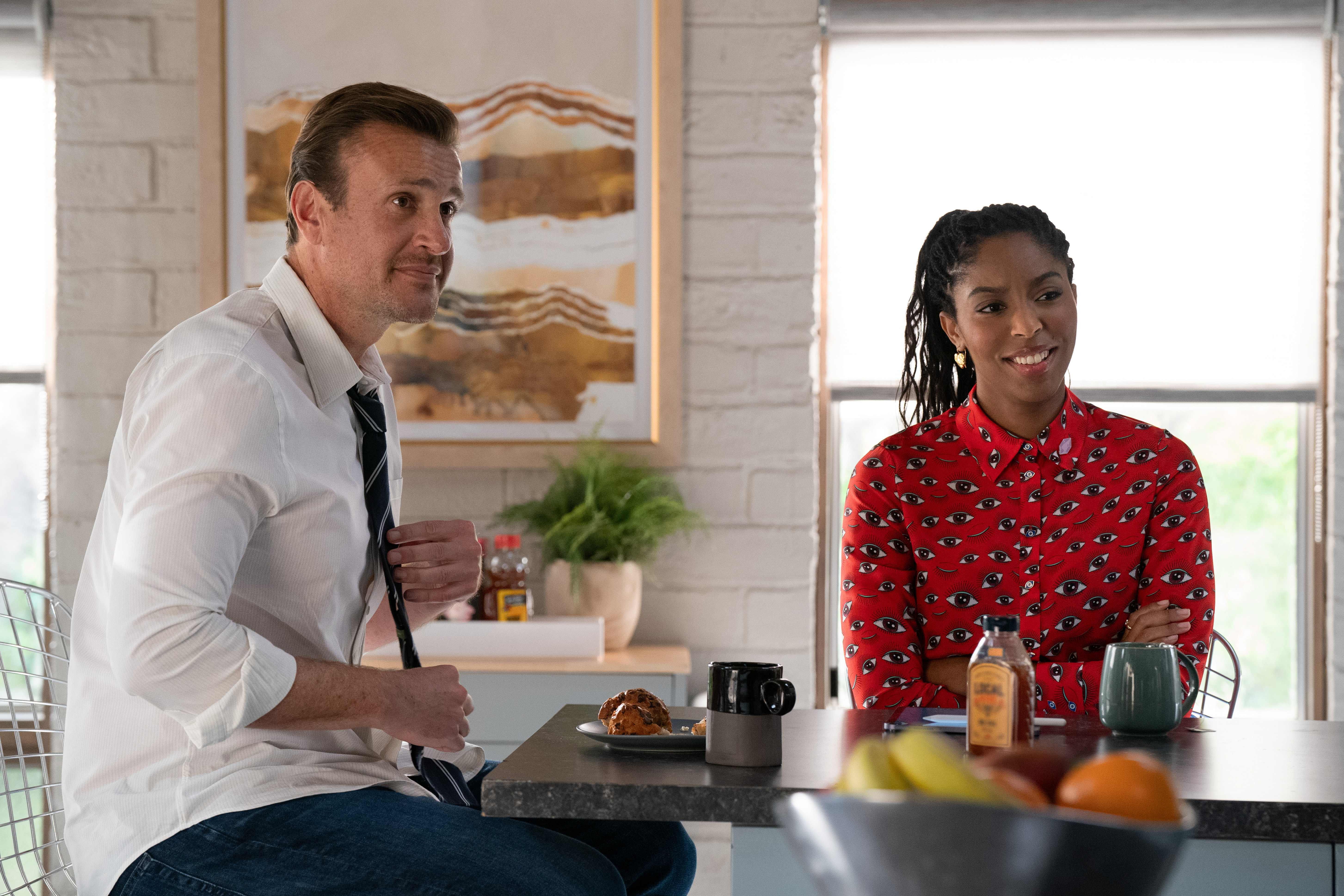
I noted that “Double D”—Summer is better at nicknames than we gave her credit for—replaced the Grace story as a central engine, but as a hangout show, the biggest leftover from last season ended up being Gaby and Jimmy’s hookups. Gaby still has her own story here, insofar as we see her teaching her class, but her tension with Liz is all rooted in her connection to Jimmy, and when we switch to the second episode it’s all about how their attempt to return to being friends isn’t as smooth as they want it to be. There’s no real argument about the facts: Paul and everyone else knows they’re hooking up, Gaby knows that Jimmy isn’t ready for an actual relationship, Jimmy knows that Gaby is more emotionally invested than he is. But that doesn’t stop him from mixing a friendly gesture with his sex underwear, and while their fight is played for laughs, there’s some really toxic stuff floating in the story that they’ll need to process. Again, though, it’s not a toxicity that destroys the show’s hangout dynamics: it lives alongside it, able to be controlled and maintained to keep the good vibes rolling.
Given this, one thing I know about that writer’s room conversation between seasons is that I am mostly in agreement with their assessment of the show they were making: Shrinking still isn’t breaking entirely new ground in terms of its themes, but the characters are strong, the performances are great, and there’s a really lived-in quality to the whole affair. There’s no question that Liz and Derek operate on a different register than the therapists’ workplace stories, but it works because Christa Miller is a seasoned veteran of a Bill Lawrence show’s balance of tones, and Ted McGinley is playing such a distinctly charming middle-aged himbo. We didn’t see the development of the informal family dynamic created after Tia’s death, but the return to the night of her accident reminds us how much these relationships are built in that trauma, and it keeps even the zanier elements from flying off into an entirely different show.
While these episodes introduce some new plot elements that we’ll no doubt be following, we’re—to adopt the metaphor from the opening title sequence—not in a hedge maze unsure of our direction. There’s a flag up ahead for us to follow, and I’m excited to see where it takes us.
Stray observations
- As noted, I laughed at many Paul lines here, but the single funniest thing Harrison Ford did was his smile when he learned that he pushed Jimmy to his death in a dream. Just a delight.
- The one other question I have for the writers is the question of Brian—he was literally an afterthought at his own wedding last season, and siloing him in the Grace storyline here is going to create more issues. When I think about the show as a whole, Jimmy’s relationship with Brian has just never felt as central as…every other character interaction, and so I’ll be really interested to see how his presence in the legal side of things plays out across the season. Michael Urie deserves a chance to explore the character in more detail than what we got here, at the very least.
- Has Jason Segel always been buff enough to pop his pecs? This is a new development, right?
- Alice’s conversation with Jimmy about how things changed a few months ago reminds me how vague the timeline on season one was, and leaves the question open: was it Jimmying his patients, or could it have also been the relationship with Gaby? As noted, he’s not ready for the latter, but it might still be a contributing factor as he works to weather the arrival of Double D in his own way.
- I mentioned it above, but Gaby’s oversharing with her student was truly mortifying for me as a professor—like, they shouldn’t know that much about your life! It makes me extra worried for Lawrence’s upcoming college show with Steve Carell, which is no doubt going to give me hives.
- “You have a rock—I love you” reminds us that Liz is ultimately a deeply emotional person, and we see that play out with Sean as well, but I do wonder what kind of dramatic arc we’ll see for her. She’s so clearly in a support role, but she resolves the tension with both Gaby and Sean really effortlessly, and I wonder where her limit is—Jimmy, perhaps?
- If Gaby really thought she was fully cutting ties with Jimmy, surely she knew that memorializing him as the first guy tall enough to 69 with wasn’t going to help matters, right?
- After James Ponsoldt stuck around for the first season, Lawrence vet Randall Keenan Winston is seemingly fully in charge as directing producer, helming both episodes. Meanwhile, none of the creators were involved in the writing early on, with newly elevated EP Rachina Fruchbom and Annie Mebane ably handling these first two scripts.
- Welcome back to Episodic Medium’s coverage of Shrinking. This show was a bit of a risk for us back in January 2022, a period where the schedule was light due to COVID and it wasn’t clear how new shows without a huge amount of hype could be sustained in this model. It was encouraging to know how many people said that they chose to watch it based on the fact it was being covered, and whose engagement with the show was enriched by these reviews, so I’m thrilled to be able to return to them in the weeks ahead.
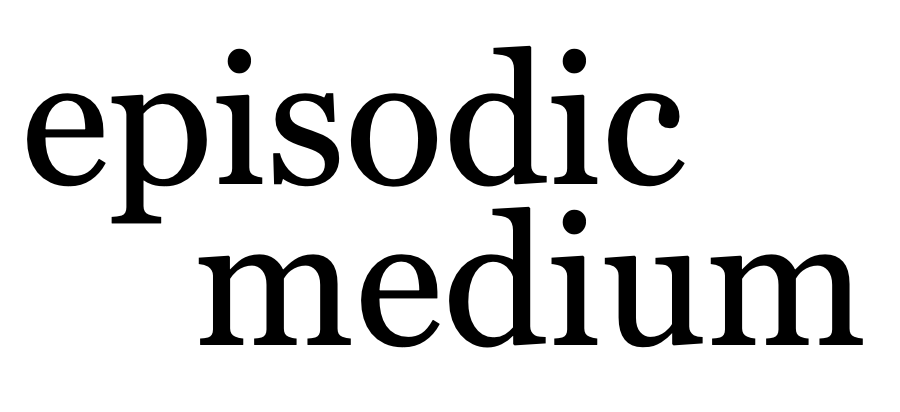
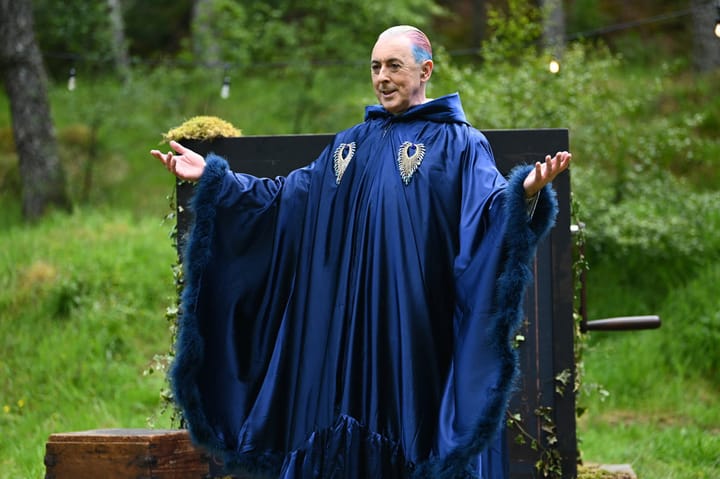
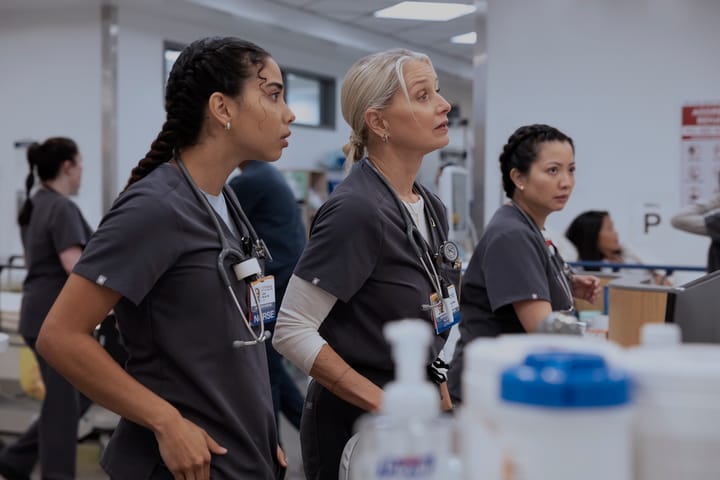

Comments ()